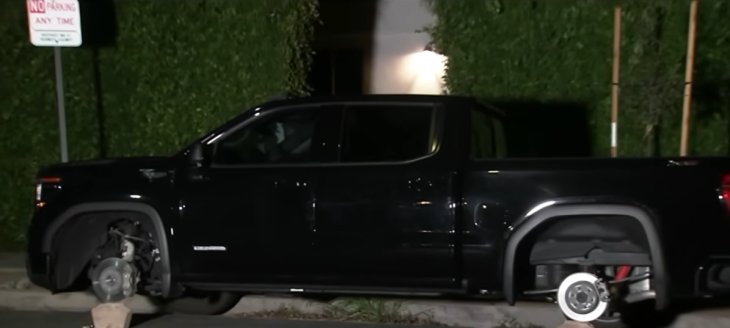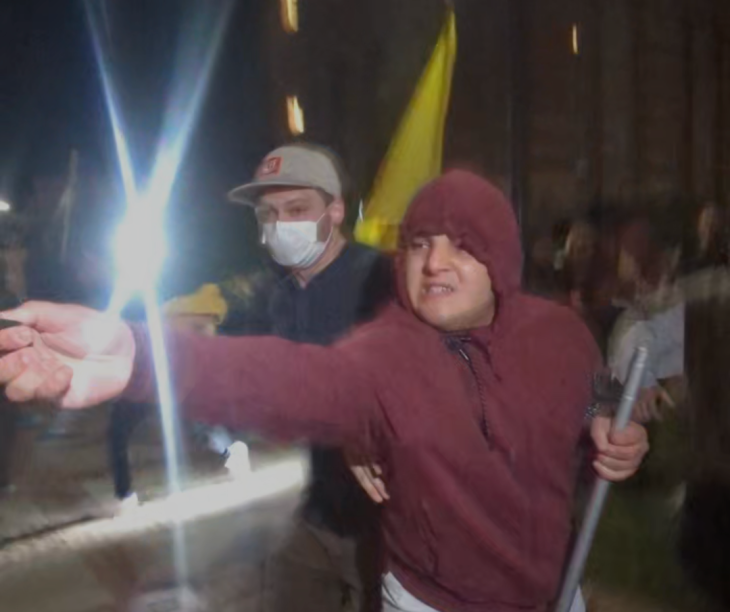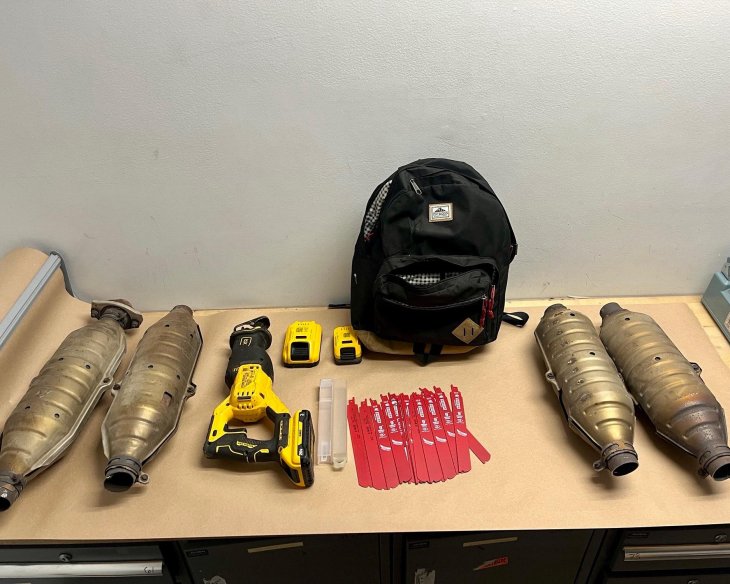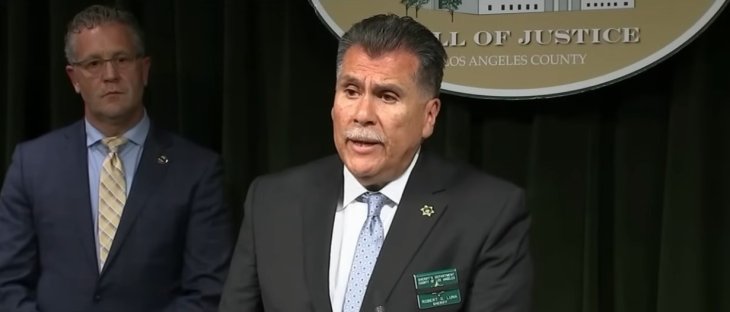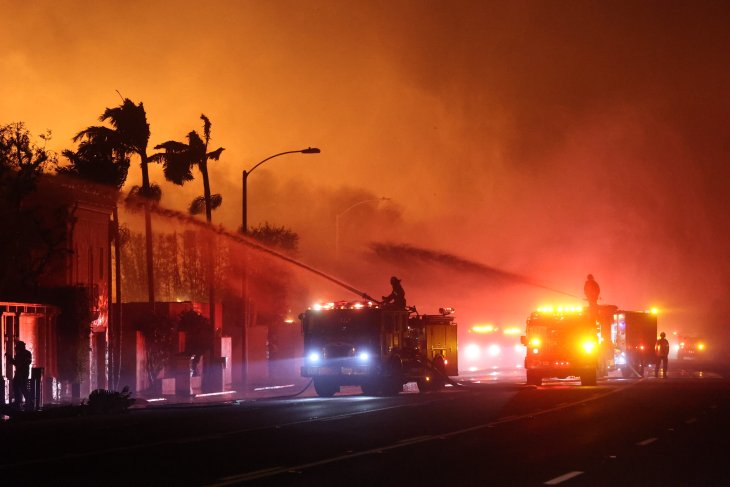The Board of Supervisors voted today to have county attorneys evaluate options to force a shutdown of the Exide battery recycling plant in Vernon and the clean-up of contamination in nearby neighborhoods.
Supervisor Gloria Molina held a news conference in advance of the vote, accusing Gov. Jerry Brown and regulators of striking a “secret agreement” to issue a permit for the plant. She said that agreement does not go far enough to protect the community.
“It is hard for me to control the kind of temper that I have,” Molina said, telling reporters gathered outside the Kenneth Hahn Hall of Administration that the governor would not return her calls and was showing disrespect to the citizens of Boyle Heights.
“The governor needs to come by” to meet with residents, Molina said.
Regulators would be more responsive if the pollution from the plant were affecting “a different kind of neighborhood,” she said.
In September, Brown signed a bill requiring the Department of Toxic Substances Control to either issue a permanent permit or shut the plant down by the end of 2015.
The Exide plant has been closed since mid-March while management works to upgrade pollution controls and meet other regulatory requirements.
State regulators announced an enforcement order last week that requires Exide to spend $9 million to clean up contamination in Boyle Heights and Maywood and set aside more than $38 million to cover the cost of potentially closing the plant.
Regulators said today the $9 million will be enough to pay to clean up 215 homes and that the order is binding, even if Exide is liquidated.
“DTSC has been clear since day one,” said DTSC spokesman Sandy Nax. “Exide is liable for cleaning up its contamination in the surrounding neighborhoods. We were the first agency to step in and suspend Exide’s operation.”
The order is subject to the approval of a bankruptcy judge in Delaware.
The company filed for bankruptcy protection in June 2013.
“The department’s order is tough and robust, requiring Exide to comply with numerous stringent actions as the company seeks to obtain its permanent permit,” said Thomas Strang, Exide’s vice president of environmental health and safety. “Exide is committed to working with regulators, operating a premier recycling facility, putting our employees back to work and engaging transparently with the community.”
But community activists said the order will not get the job done.
“It is full of holes and ambiguities,” said Gladys Limon, an attorney with Communities for a Better Environment.
A county public health official agreed, calling the state enforcement order without “teeth” and full of loopholes.
It is “a very weak agreement that can evaporate at any time,” said Angelo Bellomo, the Department of Public Health’s director of environment health and the head of a county strike team on the issue.
DTSC officials disagreed, saying the order doesn’t cap the total cost of any cleanup and that it isn’t the end of regulatory orders against the battery plant.
“This is just the beginning,” Nax said, outlining the process for further investigation and clean-up measures. “We anticipate issuing additional orders as we gain more information about the company’s impact on the surrounding neighborhood.”
The regulatory agency has been working with county public health and law enforcement officials, Nax said, holding bi-weekly meetings with technical staff. The clean-up plan was developed in coordination with the Department of Public Health and was circulated for 30 days for public comment, Nax said.
Exide has been under fire for years over the operation of its Vernon plant, which regulators have faulted for excess emissions of lead and arsenic.
Residents and elected officials have rallied for its closure.
The health effect on residents is hard to quantify, Bellomo said.
The DTSC — which has allowed the plant to operate under a temporary permit for 33 years — found instances of acid battery waste leaking from trailers on site and at least one truck transporting the hazardous material from the Vernon facility. A federal grand jury is investigating whether criminal charges are warranted.
When operational, the plant recycles about 25,000 batteries daily. It is one of only two lead-acid battery recycling plants west of the Rockies.
The agreed-upon cleanup effort includes 39 previously identified properties near the plant that had elevated levels of lead in the soil, along with other properties found to have high lead concentrations, according to Exide and the DTSC.
“We recognize the community’s concerns and have committed to clean residential properties and work efficiently to minimize disruptions to residents,” Strang said last week.
Regulators are working with homeowners now to coordinate removal of contaminated soil, Nax said.
A community activist said regulators and the company have proven time and again that they cannot be trusted to do the right thing and demanded a permanent shutdown.
“We can’t trust DTSC and Exide to do what’s right for our community,” said Mark Lopez, director of East Yard Communities for Environmental Justice. “It is reckless for the state to continue operations.”
The board’s vote was unanimous. A report back on legal options is expected next week.







